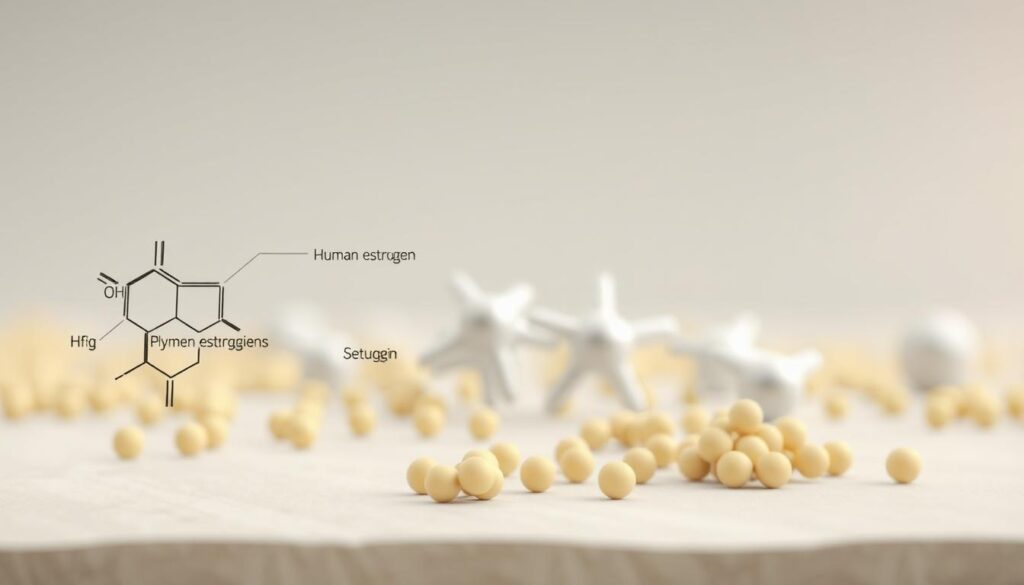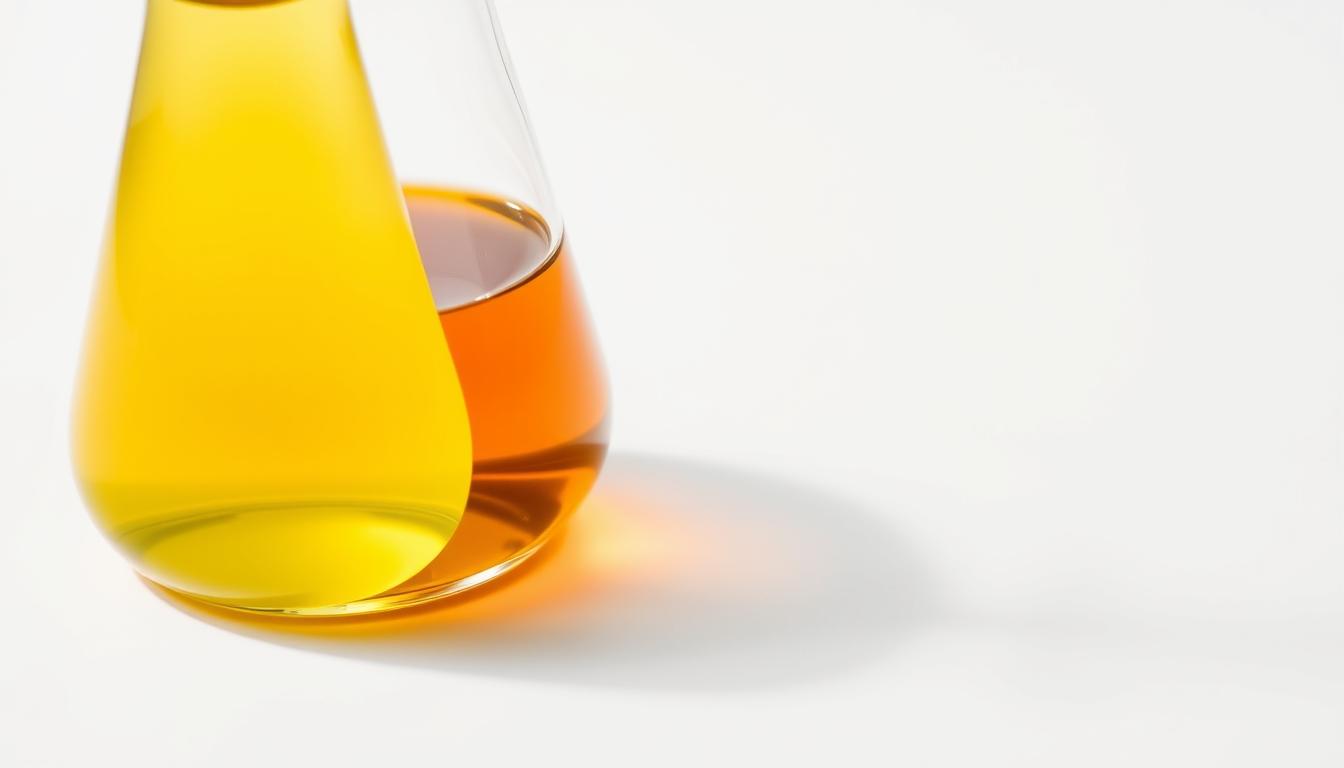Have you ever wondered how soy impacts your health, especially when it comes to hormones like estrogen? This question has sparked debates among health enthusiasts and researchers alike. Soy, a staple in many diets, contains compounds called isoflavones, which are a type of phytoestrogen. These plant-based compounds can interact with your body in unique ways, sometimes mimicking or influencing human estrogen.
According to Dr. Julia Brockway-Marchello, soy’s isoflavones have been linked to reduced cancer recurrence, particularly in certain types of cancer. Memorial Sloan Kettering Cancer Center also highlights that while soy can offer health benefits, it’s important to understand how it interacts with your body. Unlike human estrogen, phytoestrogens are much weaker and can either block or enhance estrogen effects depending on the context.
This guide will explore the nutritional benefits of soy, its role in cancer risk reduction, and the controversies surrounding its consumption. Whether you’re looking to improve your health or simply curious about soy’s effects, this comprehensive overview will provide you with the facts and insights you need.
Key Takeaways
- Soy contains isoflavones, a type of phytoestrogen that can influence hormone activity.
- moderate soy consumption may reduce the risk and recurrence of certain cancers.
- Isoflavones are weaker than human estrogen and can have both blocking and enhancing effects.
- Soy’s impact varies widely among individuals due to genetic and dietary differences.
- While soy offers health benefits, it’s important to approach consumption with awareness, especially for cancer patients.
Understanding Soy and Its Health Impact
Soy is a versatile food that has been a part of human diets for centuries. It’s known for its rich nutritional profile and potential health benefits. But what exactly makes soy so special?
What Are Soybeans and Their Key Nutrients?
Soybeans are legumes packed with protein, fiber, and various vitamins and minerals. They are particularly rich in isoflavones, a type of phytoestrogen. These compounds are known for their role in mimicking some effects of human estrogen in the body.
One of the standout features of soybeans is their complete protein profile. This means they contain all nine essential amino acids that the human body cannot produce on its own. This makes soy a great option for vegetarians and vegans looking to meet their protein needs.
Nutritional Value of Whole Soy Foods
Whole soy foods, such as tofu, edamame, and tempeh, offer more nutritional benefits compared to processed soy products. These foods are rich in fiber, vitamins, and minerals, making them a healthier choice.
A study published in the Journal of Nutrition found that regular consumption of whole soy foods can contribute to a balanced diet and overall health. The key is to choose minimally processed options to reap the most benefits.
| Food Type | Protein Content (per serving) | Isoflavones (mg per serving) |
|---|---|---|
| Tofu | 20g (3 oz serving) | 30-40mg |
| Edamame | 17g (1/2 cup cooked) | 50-60mg |
| Tempeh | 19g (3 oz serving) | 40-50mg |
| Soy Milk | 8g (1 cup) | 20-30mg |
As shown in the table above, whole soy foods like tofu and edamame are excellent sources of protein and isoflavones. Incorporating these into your diet can provide significant health benefits.
Research suggests that moderate consumption of soy foods can support heart health and may reduce the risk of certain cancers. However, it’s important to be mindful of portion sizes and overall diet balance.
Exploring soybeans estrogen: How Phytoestrogens Differ from Human Estrogen
When discussing the effects of soy, it’s essential to understand the unique relationship between phytoestrogens and human hormones. Phytoestrogens, like those found in soy, are plant compounds that can interact with the body’s hormone system. However, they work very differently from the estrogen produced by our bodies.
Understanding the Mechanisms
Phytoestrogens, specifically soy isoflavones, have a distinct chemical structure compared to human estrogen. This difference means they interact with hormone receptors in a unique way. Unlike human estrogen, which can strongly bind to receptors and trigger significant effects, phytoestrogens have a weaker interaction. This weaker binding can sometimes block the effects of human estrogen, potentially reducing the risk of hormone-related cancers.
Research shows that soy isoflavones do not stimulate the same pathways that human estrogen might, which is why they don’t carry the same cancer risks. In fact, studies suggest that moderate consumption of soy isoflavones may even lower the risk of certain cancers, such as breast and prostate cancer. The body processes these compounds efficiently, ensuring they don’t accumulate to harmful levels.

The evidence supporting the safety of soy isoflavones is robust. For instance, the American Cancer Society notes that moderate soy consumption does not increase cancer risk and may offer protective benefits. This makes soy a valuable part of a balanced diet, especially for those looking to reduce their cancer risk or manage hormone-related health issues.
Soy Foods and Cancer Risk: Examining Breast, Prostate, and Other Cancers
Research has shed light on the potential role of soy foods in reducing cancer risk, particularly for breast and prostate cancers. Studies suggest that moderate soy consumption may offer protective benefits.
Research Insights on Breast Cancer Prevention
A large-scale study involving over 300,000 women found that higher soy isoflavone intake was associated with a 3% reduction in breast cancer risk for every 10 mg/day consumed. Dr. Julia Brockway-Marchello notes that moderate soy intake can lower breast cancer recurrence by 30%.
Asian women, who often consume soy as part of their traditional diet, tend to have better breast cancer outcomes. This suggests that cultural dietary practices may play a role in cancer prevention.
The Role of Soy in Prostate and Lung Cancer
A meta-analysis of 30 studies revealed that soy intake significantly reduces prostate cancer risk by 29%. This protection is more pronounced in Asian populations, likely due to higher soy consumption.
Emerging research also points to soy’s potential benefits in reducing lung cancer risk, although more studies are needed to confirm these findings.
| Cancer Type | Study Findings | Risk Reduction |
|---|---|---|
| Breast Cancer | China Kadoorie Biobank study | 3% per 10 mg/day isoflavones |
| Prostate Cancer | Meta-analysis of 30 studies | 29% with soy intake |
| Lung Cancer | Ongoing research | Promising but inconclusive |
These findings highlight soy’s potential in reducing cancer risk. Moderate consumption, as part of a balanced diet, may contribute to overall health and disease prevention.

Incorporating Soy into a Balanced Diet
Adding soy to your meals can be simple and delicious. With a little planning, you can enjoy the health benefits of soy while keeping your diet balanced and varied.
Recommended Servings and Types of Soy Foods
Experts suggest 1-2 servings of whole soy foods daily. A serving might be:
- 1/2 cup of edamame
- 1 cup of soy milk
- 3 oz of tofu
Incorporate these into your meals for a nutritious boost.
Dietary Tips for a Healthful Soy Diet
Balancing soy with other whole foods is key. Here are some tips:
- Start small: Add soy milk to smoothies or top salads with edamame.
- Vary your sources: Mix tofu, tempeh, and edamame for different flavors and textures.
- Diversify your plate: Pair soy with whole grains, vegetables, and healthy fats for a balanced meal.
A varied diet helps maximize soy’s benefits while minimizing risks.
Consult a healthcare professional before using soy supplements, especially if on medication. Moderation and diversity are key to a healthy diet.

Health Benefits Beyond Cancer Prevention
While soy is often discussed in the context of cancer prevention, its benefits extend to other areas of health as well. From improving heart health to supporting bone strength, soy offers a multitude of advantages that make it a valuable addition to a balanced diet.
Impact on Cholesterol and Heart Health
Research has shown that soy can play a significant role in reducing cholesterol levels. Studies indicate that regular consumption of soy products can lower LDL (“bad”) cholesterol by up to 3%, which can contribute to a reduced risk of heart disease. The isoflavones present in soy are believed to be responsible for this cholesterol-lowering effect.
A study published in the Journal of Nutrition found that individuals who incorporated soy into their diet experienced improved cardiovascular function. This suggests that soy can be a beneficial addition to a heart-healthy diet.
Other Preventive Health Benefits of Soy
Beyond its impact on cholesterol, soy also offers other preventive health benefits. Soy is a rich source of high-quality protein, which is essential for maintaining muscle and bone strength. This makes it an excellent option for those looking to support overall health and wellness.
In addition to its protein content, soy has been linked to improved bone health. This is particularly beneficial for individuals at risk of osteoporosis, as it helps maintain bone density and reduces the risk of fractures.
| Health Benefit | Effect of Soy |
|---|---|
| Cholesterol Reduction | Lowest LDL levels compared to other proteins |
| Heart Health | Improved cardiovascular function |
| Bone Strength | Supports bone density, reducing fracture risk |
These findings highlight the diverse health benefits of soy, making it a valuable component of a well-rounded diet. Incorporating soy into your meals can contribute to improved heart health and stronger bones, among other advantages.

Controversies and Research Insights on Soy Isoflavones
Research on soy isoflavones has sparked debates due to contrasting findings between animal studies and human trials. While some studies suggest potential benefits, others raise concerns, particularly regarding hormone-sensitive cancers.
Animal Studies Versus Human Evidence
Animal studies often show stronger effects of soy isoflavones, but these findings don’t always translate to humans. For instance, high doses in animal research may not reflect typical human consumption levels. The NTP-CERHR expert panel noted that rodents receive isoflavone doses 5-16 times higher than average human intake, leading to different outcomes.
Understanding Dose, Exposure, and Safety
Dosing and metabolism play crucial roles. Humans metabolize isoflavones differently, with factors like gut bacteria affecting outcomes. For example, research shows that in breast cancer studies, soy intake didn’t increase cell proliferation, with Ki67 levels similar to placebo groups. However, some studies report slight changes in breast tissue density, though these aren’t clinically significant.
Current evidence supports moderate soy consumption as safe, but individual responses vary. The American Cancer Society suggests up to three servings daily for breast cancer patients. However, concerns persist, especially for those with a history of hormone-sensitive cancers, where soy protein isolate might pose risks.
In conclusion, while controversies exist, moderate soy intake is generally safe and may offer health benefits. Consulting a healthcare provider is advisable for personalized advice.
Soy-Based Products and Infant Nutrition Considerations
Soy-based products, such as infant formulas, have become a popular choice for parents seeking alternatives to traditional options. These products are designed to meet the nutritional needs of babies, offering a viable option for those with dietary restrictions or preferences.
The Benefits and Cautions of Soy Formula
One of the key differences between soy formula and soy milk is the nutritional profile. Soy formula is specifically formulated with additional nutrients to support infant development, making it a suitable choice for parents looking for a milk alternative.
When it comes to hormonal impacts, studies show that infants fed soy-based formulas have higher levels of isoflavones compared to those on cow’s milk formula. However, it’s important to note that the majority of these compounds are in an inactive form, minimizing potential hormonal effects.
The American Academy of Pediatrics states that soy formula is a safe and nutritionally complete option for infants, particularly for those with dairy allergies or sensitivities.
Here are some key considerations for parents:
- Benefits: Soy formula is a good option for infants with cow’s milk protein allergies and for families following a vegan diet.
- Cautions: There is a higher risk of soy protein intolerance in some infants, and soy formulas may contain higher levels of certain minerals like aluminum.
Expert recommendations generally favor cow’s milk-based formula unless specific allergies or dietary needs make soy-based products necessary. Parents should consult with their pediatrician to determine the best choice for their baby.
Conclusion
In conclusion, soy stands out as a versatile and nutritious food that plays a significant role in promoting health. Its isoflavones have been shown to reduce risk for certain cancers and support heart health, making it a valuable source of high-quality protein in a balanced diet.
While debates about soy’s effects continue, the evidence supports its benefits when consumed in moderation. Incorporating plant-based soy products like tofu or edamame into your daily meals can contribute to overall well-being and disease prevention.
Consider your dietary choices based on the research presented and stay informed as new findings emerge. Soy’s multifaceted benefits make it a wise addition to a healthy lifestyle.


